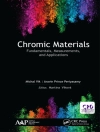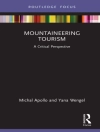This book is the first authored overview of resilience in tourism and its relationship to the broader resilience literature. The volume takes a multi-scaled approach to examine resilience at the individual, organisation and destination levels, and with respect to the wider tourism system. It covers the different approaches to understanding resilience (the ecological and engineering approaches) and identifies issues with their understanding and application. The book connects issues of resilience to related key concepts such as vulnerability, adaptation, networks, systems, change and social capital. It is designed to be an upper level undergraduate and postgraduate primer on resilience in a tourism context and will be of interest to tourism researchers in planning, development, geography, impacts, sustainability, disaster management and environmental studies.
Inhaltsverzeichnis
List of Figures
List of Tables
List of Boxed Cases and Insights
Acknowledgements
List of Acronyms
1. Disturbance and Change in the Tourism System
2. Resilience: Responding to Change
3. Individual Resilience
4. Organisational Resilience
5. Destination Resilience
6. Conclusion: Is Resilience a Resilient Concept?
References
Index
Über den Autor
C. Michael Hall is a professor at the University of Canterbury, New Zealand. His recent book publications include Contemporary Tourism (with C. Cooper, 5th edn, Goodfellow, 2022) and Sense of Place and Place Attachment in Tourism (with N.C. Chen & G. Prayag, Routledge, 2023).












